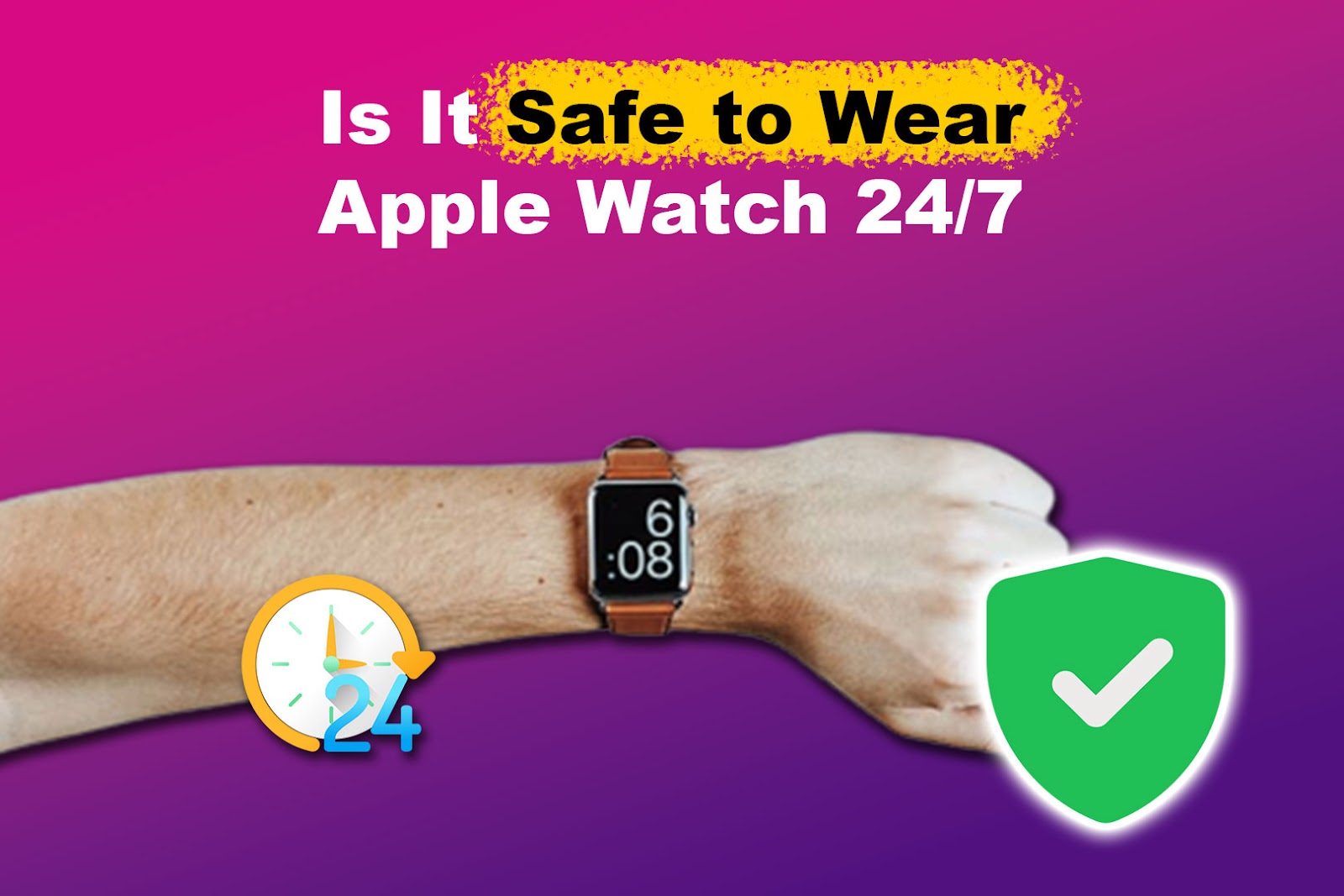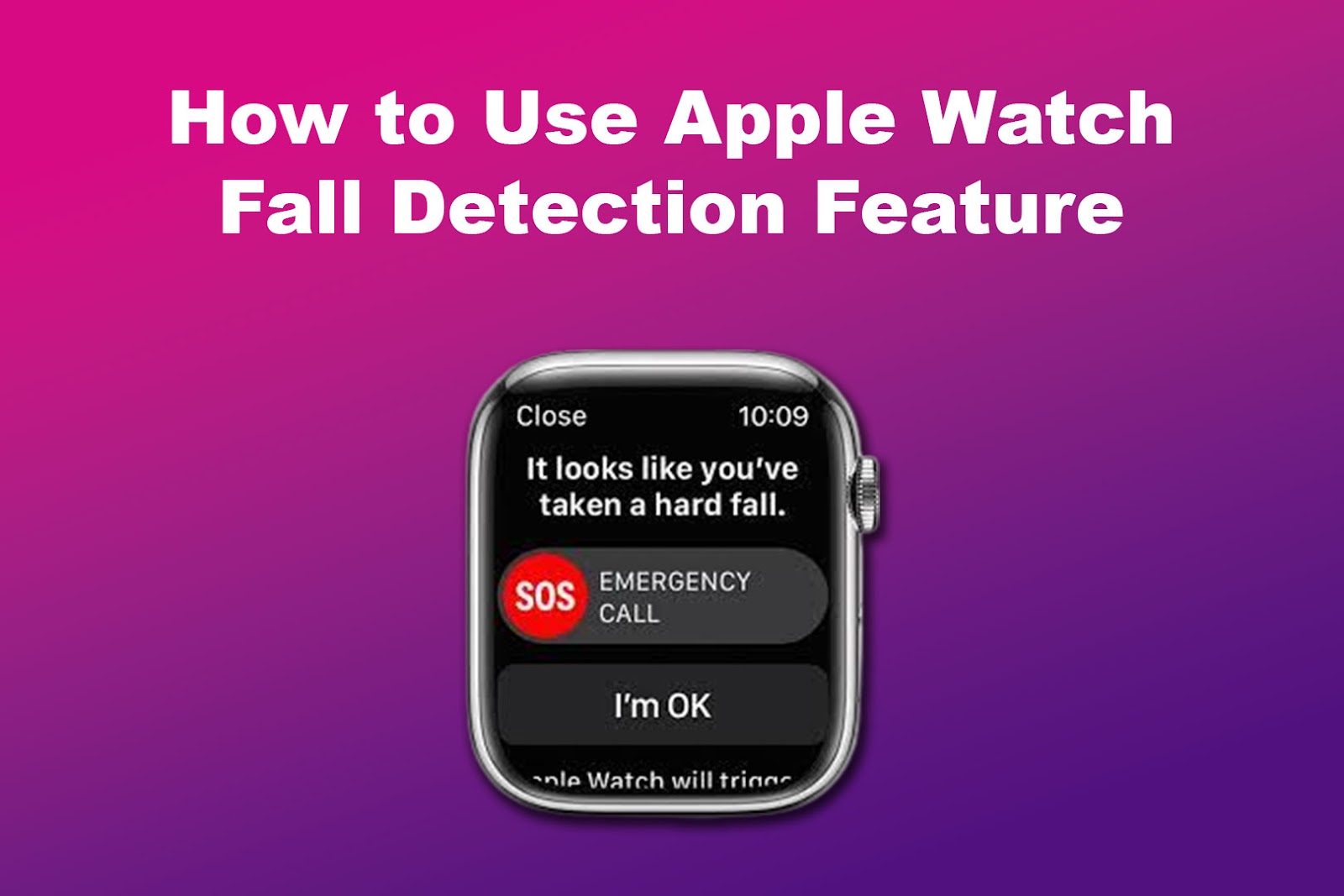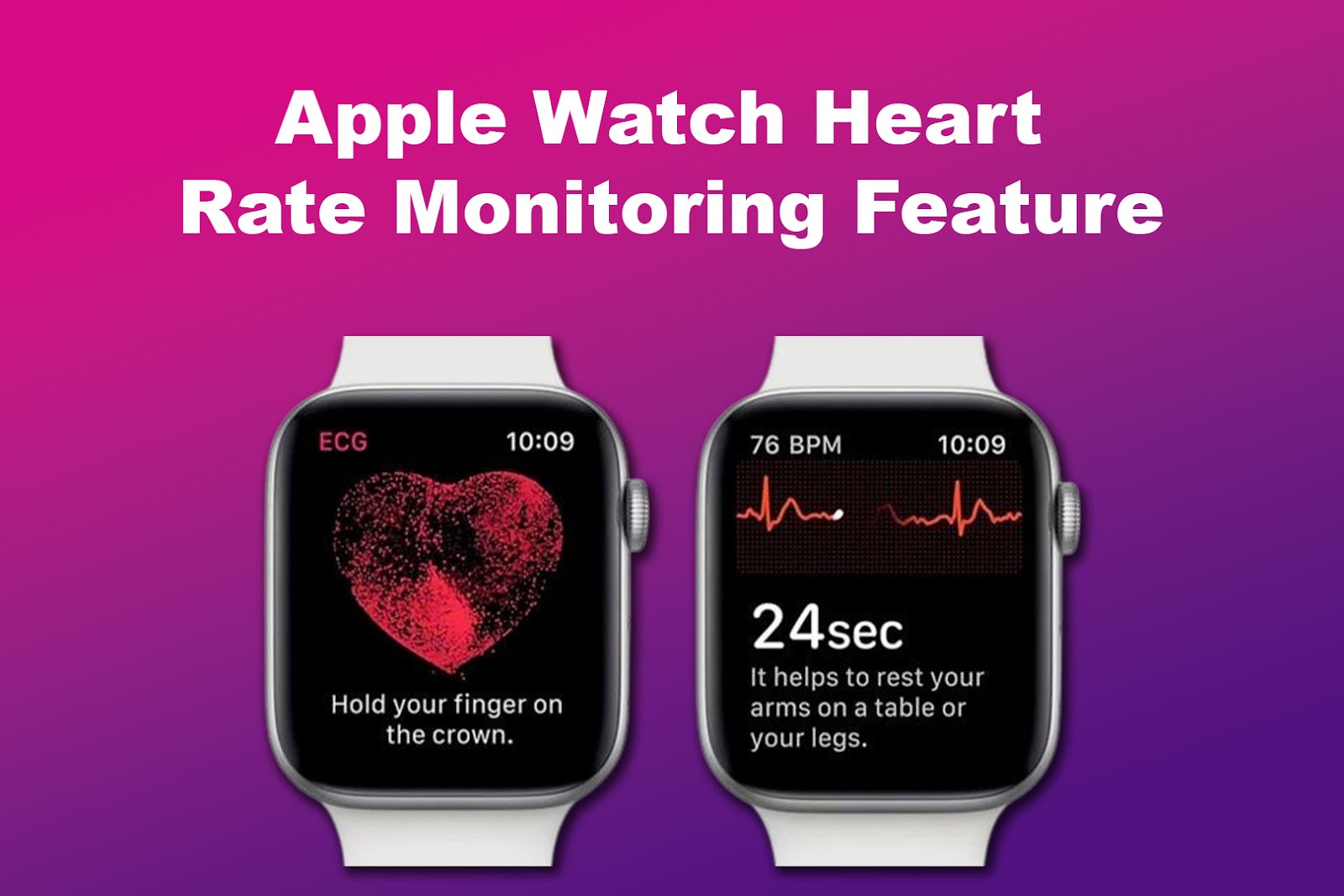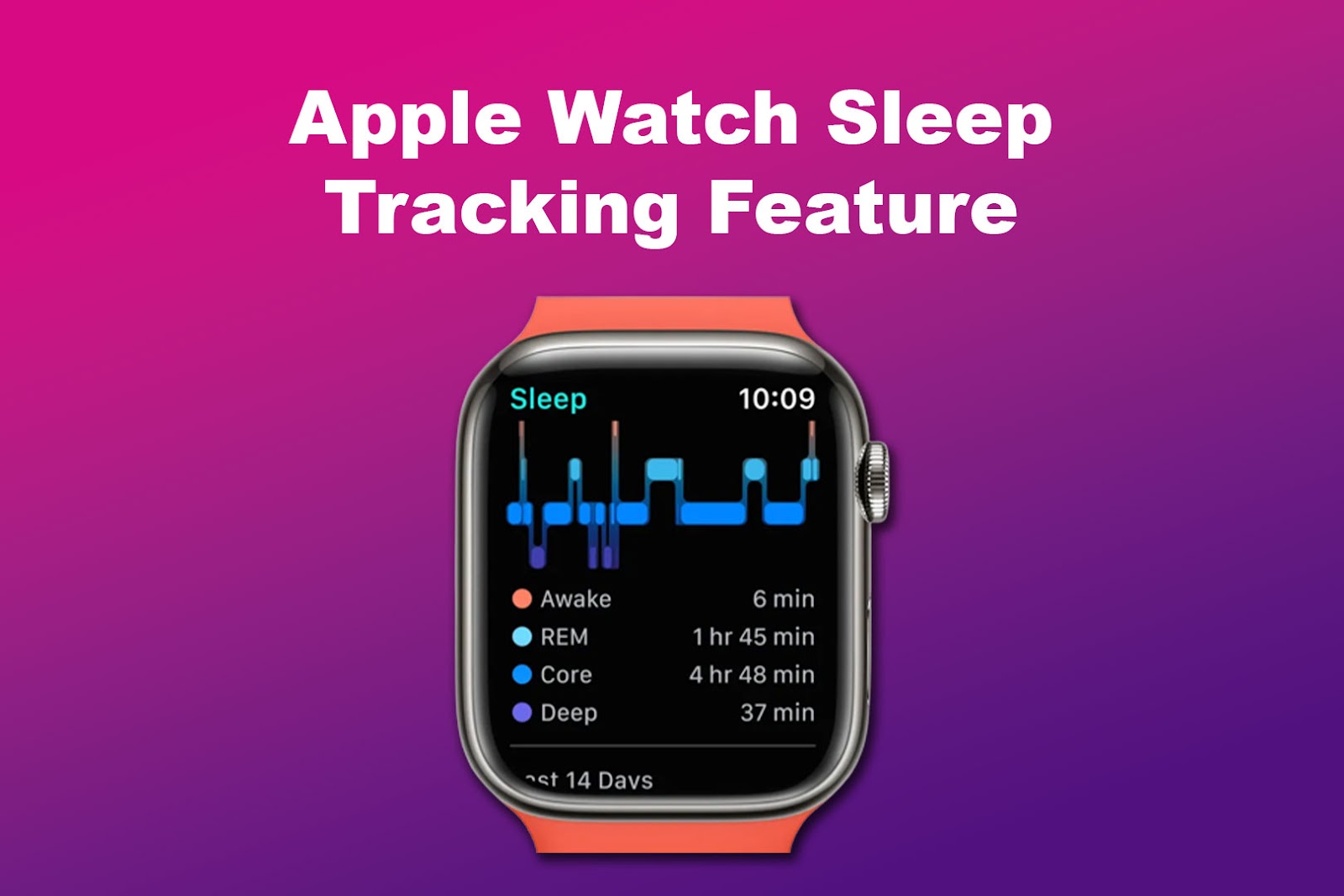The Apple Watch has become more diverse than its first release. Apple has improved the device’s features by including health functions, such as ECG, heart rate monitor, and sleep tracker.
Despite these benefits, many users have questions regarding its safety features, especially when worn for extended periods. So, is it dangerous to wear an Apple Watch all the time?
In this article, we’ll explore whether it’s safe to wear an Apple Watch 24/7 and look into any health risk factors involved. We’ll also look at the benefits of wearing an Apple Watch.

Can You Wear an Apple Watch All The Time?
Yes, you can wear the Apple Watch all the time. Apple designed it using materials that are safe for human skin. It also has a sleep tracking feature, which means the company made it a device you can wear even in your sleep.
Having said this, if you have sensitive skin, you should limit your Apple Watch usage. Despite the watch’s materials being non-triggering to skin allergies, wearing it all day can cause your skin to sweat. As a result, the sweat produced by your skin can irritate you.
If you have sensitive skin, you can prevent irritation by wearing your Apple loosely.
While this may sacrifice the accuracy of the watch’s trackers, you can always tighten it when you need to use its tracking features like ECG and workout monitor.
So… is it safe to wear an Apple Watch while sleeping? Yes, generally, it’s safe to wear it during your sleep. However, if you have special skin conditions, you should consult with a specialised doctor or a dermatologist.
Are There Any Health Risks to Wearing an Apple Watch?
No, there are no serious health risks of wearing an Apple Watch all the time. There is also no conclusive evidence to back the claim that the watch causes cancer. However, wearing it all the time can cause wrist pain, carpal tunnel syndrome, wrist marks, and muscle cramps.
You may feel pain in your wrist if you wear your Apple Watch too tightly. A tight watch applies pressure on the nerves around your wrist, leading to muscle cramps and pain. Still, you should wear your Apple Watch firmly for it to track data accurately.
Can the Apple Watch Cause Cancer?
No, the Apple Watch does not cause cancer despite its electromagnetic field (EMF) radiation emission. According to studies, there are no EMF-emitting devices that can cause people to develop cancer.
The Apple Watch only emits 0.17W/kg of EMF radiation. This measurement is relatively lower than the Federal Communications Commission’s recommended maximum exposure of 1.6W/kg.
What Are the Benefits of Wearing an Apple Watch 24/7?
There are numerous benefits of wearing an Apple Watch all the time. The developers have ensured you get the worth of your money with the Watch, considering the various health features, such as the heart rate monitoring that comes with the device.
These are the significant benefits of wearing an Apple Watch 24/7:
Benefit 1. Fall Detection
One of Apple Watch’s best technologies is the Fall Detection feature, which senses when you get into an accident and initiates contact with emergency services.
When the watch detects that you fell, it will sound an alarm and display an alert message saying, “It looks like you’ve taken a hard fall.” and give you three options. It will then provide you the options “Emergency SOS”, “I fell, but I’m okay”, and “I did not fall”.
Choosing the “Emergency SOS” will prompt your Apple Watch to call emergency services for rescue.

Note! The more physically active you are, the more the chances of activating the Fall Detection feature.
Visit Apple’s website and Learn More About the Fall Detection Feature.
Benefit 2. Heart Rate Monitoring
The Apple Watch has a heart-rate monitoring feature that is especially helpful if you have a heart condition. It tracks your heart rate, allowing you to see whether your heartbeat is normal or not. You’ll get a notification whenever the Watch detects irregular heart rhythms.
The Apple Watch Heart Rate Monitoring app is also helpful for working out. Apart from heart rate monitoring, it can also track the calories you burn and your recovery times.

Benefit 3. Medication Tracking
It is safe to wear an Apple Watch 24/7 if you are depending on the device’s medication tracking feature. The device is handy if you have a busy schedule and need constant reminders to take your medications.
All you have to do is input a list of your medications and set a specific reminder schedule for each drug. You can also log your vitamins and supplements on the Apple Watch’s feature.
Benefit 4. Sleep Tracking
Apple Watch’s Sleep Tracking feature allows you to create sleeping schedules, which is ideal if you want to create a good sleeping pattern.
However, it is worth noting that you must be asleep for at least 4 hours for the watch’s Sleep Tracking feature to track your bedtime. Therefore, less than 4 hours of sleep is not counted as a sleep pattern for this app.
The watch’s sleep-tracking feature allows you to create a consistent rest schedule. Since sleep is essential to one’s health, this is another indication that it is safe to wear the Apple Watch 24/7.

Benefit 5. Use ECG
Heart Rate monitoring isn’t the only heart-related feature on the Apple Watch. The device also has an electrocardiogram (ECG) feature and an electrical heart rate sensor.
Along with the app, it checks for “atrial fibrillations” (irregular heartbeat). The tech is quite reliable, with Apple highlighting ECG’s 99.6% and 98.5% accuracy rates.
Note! This feature is only available on Apple Watch Series 4 and later.
By the way, if you have issues using ECG or it’s not working fine for you, check out how to fix it in this other article.
Learn more about the ECG Apple Watch feature on Apple Support.
When Should You Avoid Wearing an Apple Watch?
You may be wondering when it is dangerous to wear the Apple Watch. True enough, there are times when wearing the Apple Watch is not ideal. However, it is worth noting that the times when you cannot wear the watch puts the device at risk rather than vice versa.
Here’s when to avoid wearing the Apple Watch:
- During Showers
The Apple Watch might be water resistant, but they are at risk of damage from your bathing soaps, shampoos, or any other cleaning products. - When Playing Extreme Sports.
The watch can be externally damaged when you perform extreme activities like rock climbing or endurance sports. So, you should only wear it during simple activities like working out or jogging. - In Saunas and Steam Rooms.
Overheating can be an issue with the Apple Watch, as too much heat can damage the Watch’s system and contribute. Moreover, the system damages inaccurate results. - Deep Sea Diving or Swimming.
While the Apple Watch is water resistant, it’s only partially waterproof, meaning it cannot last long under deep waters.
Wearing the Apple Watch 24/7 Is Safe
It is safe to wear an Apple Watch 24/7, considering that there aren’t conclusive studies on the dangers of wearing an iWatch all the time. With your Watch fully functional, you enjoy numerous features, including health benefits such as medication tracking and heart rate monitoring.
Nonetheless, you should avoid wearing the Apple Watch too tightly or in specific situations like during extreme sports and deep water situations. Additionally, do not wear the iWatch overnight if you don’t schedule your sleep or when charging it.
![How to Fix Apple Watch ECG Not Working [Easy Way] fix apple watch ecg share](https://alvarotrigo.com/blog/wp-content/uploads/2023/09/fix-apple-watch-ecg-share-300x150.png)


![Apple Watch Move Goal Calculator [✓ Set the Right Goal] understanding-apple-watch-move-goal-calculator](https://alvarotrigo.com/blog/wp-content/uploads/2024/03/understanding-apple-watch-move-goal-calculator-300x200.jpg)
![Apple Watch Scratch Repair [Complete Guide] apple watch scratch repair share](https://alvarotrigo.com/blog/wp-content/uploads/2023/08/apple-watch-scratch-repair-share-300x150.png)
![What Is WindowServer on Mac? [Easy Guide] windowserver mac share](https://alvarotrigo.com/blog/wp-content/uploads/2023/08/windowserver-mac-share-300x150.png)